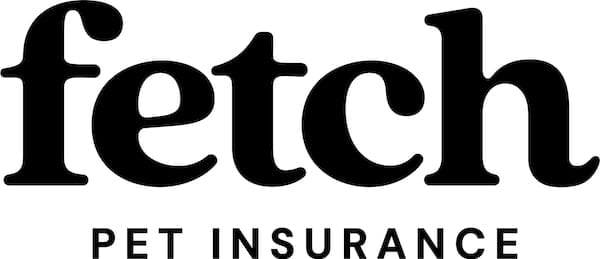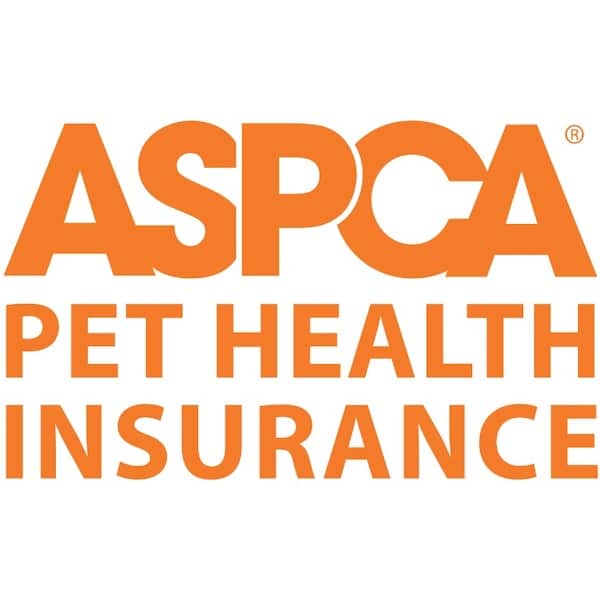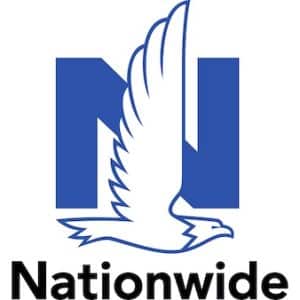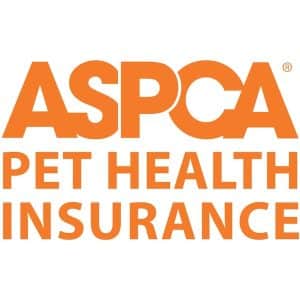- This review contains affiliate links. Read more here.
- Not a substitute for professional veterinary help.
- The insurance advice, products, and links below are intended for and only available in the states where Rover Pet Insurance Services, LLC is licensed as an insurance producer.Insurance advice, products, and links contained in this article are currently intended for and only available in the states where Rover Pet Insurance Services, LLC is currently licensed as an insurance producer. As we expand our licensing to other states we will update our websites and links. If you are located in a state in which we are not currently licensed, but would like to learn more about pet insurance products available in your state, you may contact a licensed insurance agent or broker in your state. The information provided below is offered for educational and informational purposes only. If you have questions regarding particular plans, you should reach out to your insurance company for more information.
Choosing pet insurance can be one of the most daunting parts of pet parenthood. A good pet insurance policy will offer you financial protection, covering everything from your pet’s cuts and scrapes to ear infections, broken bones, and even cancer.
But figuring out what kind of policy you need—with what key benefits—can be tough. There’s no one-size-fits-all plan.
Use this guide to learn about a few options, then compare quotes through our partner Fletch to discover what works best for your pet’s breed, age, and location. Need more help? Hop down to our FAQ.
Our picks
Interested in comparing plans to get the best coverage for your pet? Get started below by inputting your details into our comparison tool. We’ll show you all the options in one place. If you’re still learning about what each pet insurance provider offers, keep scrolling.
Best Overall Pet Insurance: Spot

Best Overall Pet Insurance: Spot
Spot leads the pack with comprehensive plans made for the medical realities of pet parenthood.
Pet insurance has made enormous strides in recent years, and Spot is leading the pack with comprehensive plans made for the medical realities of pet parenthood.
Its basic “accident and illness” policy covers as a matter of course what other companies consider extras and add-ons. Plus its waiting periods are reasonable, and it lets pet parents choose between a wide range of deductibles, reimbursements, and maximums. We think it’s a shoo-in for the number-one spot.
Unusual perk: For vet-recommended behavioral treatments (think aggression or separation anxiety), Spot will cover sessions with a certified trainer. That’s something a lot of pet insurance companies won’t do.
Worth watching: Because it has cost ceilings on the low side for various kinds of preventive care, Spot’s wellness add-on is a little lackluster. We don’t think this poses a major problem (read about why you shouldn’t pick a pet insurance provider based on a wellness plan), but it’s worth factoring into your budget.
– Accident and illness coverage; wellness add-on available
– Option for unlimited coverage, up to 90% reimbursement, and deductible choices
– “Curable” pre-existing conditions may be eligible for treatment if symptom-free for 6 months
– 15-day waiting period for illnesses, including hip and knee issues
– Exam fees covered (when related to accident and injury)
– No upper age limit
– Covers alternative therapies like acupuncture, chiropractic care, and rehabilitative therapy, plus broad dental and behavioral treatments
– 10% multi-pet discount on all additional pets
– 24/7 pet telehealth provided by VetAccess
Best Coverage: Lemonade

Best Coverage: Lemonade
Lemonade pet insurance boasts impressive coverage through a range of customizable add-ons.
Lemonade is one of the strongest pet insurance options out there thanks to its impressive coverage. We gave preference to Spot because they cover most (but not all) of Lemonade’s offerings in one pre-built plan—but some pet parents might like Lemonade better, since it lets them pick and choose.
Unusual perk: Lemonade’s plans can be customized to cover exam fees, physical therapy, dental illness, behavioral conditions, and end-of-life care—plus more traditional preventive treatments.
Worth watching: Pricing. Some of Lemonade’s really appealing perks are tucked away in add-ons, which will nudge your monthly premiums a little higher.
– Accident and illness coverage; wellness add-on available
– Option for up to $100k annual coverage, up to 90% reimbursement, and deductible choices
– “Curable” pre-existing conditions may be eligible for treatment if symptom-free for 12 months in some states
– 14-day waiting period for illnesses, 30-day waiting period for cruciate ligament events
– Exam fees covered with add-on
– Pets over 14 years of age can’t enroll
– Dental, alternative, physical and behavioral therapies, and end-of-life care covered with add-ons
– 5% multi-pet discount, 10% discount if you bundle home insurance
– No vet helpline available
Best Pet Insurance for Puppies: Pets Best

Best Pet Insurance for Puppies: Pets Best
Pets Best has three tiers of accident and illness plans, plus a high-value wellness add-on geared toward new pet parents.
Pets Best is the Swiss Army knife of options, with reasonable coverage across a wide range of pet health problems and three tiers of accident and illness plans, ranging from modest to generous.
Unusual perk: The combination of a high-value wellness add-on and a free 24/7 pet telehealth service helps offer peace of mind to new pet parents who have vaccinations, spaying/neutering, and microchipping to get through.
Worth watching: Especially strict policies around pre-existing conditions and chronic illnesses make this a rough plan for pets enrolling as seniors. Also of note is Pets Best’s language around injuries caused by repetitive behavior; repeat mischief can leave a pet uncovered for the same health issue for 18 months.
– Accident and illness coverage; wellness add-on available
– Option for unlimited coverage, up to 90% reimbursement, and deductible choices
– Waiting periods vary from state to state
– Exam fees covered by some but not all accident and illness plans
– No upper age limit
– Some dental and alternative treatment coverage, little to no behavioral treatment coverage
– 5% multi-pet discount when more than one pet is enrolled on BestBenefit plans
– 24/7 pet helpline
– Some direct vet pay available
Best for Options: Nationwide

Best for Options: Nationwide
Nationwide brings over 40 years of experience to the pet insurance game, with several unique plan styles and strong coverage for prescriptions.
Nationwide stands out among other popular pet insurance providers both for being the first to sell pet insurance in the United States and for offering several plans unique to the industry. The company offers both a traditional reimbursement plan and a benefit schedule plan with fixed amounts available per condition.*
If that sounds complicated, Nationwide has rolled out a new Pet HealthZone, which can help you decide what kind of insurance you might want based on the conditions your pet’s breed is prone to.
They also offer a PetRxExpress program for prescription discounts and offer avian, reptile, and other exotic pet insurance.
Unusual perk: Nationwide offers strong prescription coverage, plus preferred pricing and automatic claims when filled through Walmart or Sam’s Club.
Worth watching: Some of Nationwide’s plans offer limited coverage for congenital and hereditary conditions, and some of the plans’ waiting periods for cruciate ligament and hip problems are on the long side at twelve months.
*Plan availability varies by state
– Accident and illness coverage; wellness add-ons available with some plans
– Options for annual limits or per-condition limits, up to 70% or 90% reimbursement depending on plan, and deductible choices
– “Curable” pre-existing conditions may be eligible for treatment upon requested review
– 14-day waiting period for accidents and illnesses, 1 year for hip and knee issues on some plans
– Exam fees for eligible accidents and illnesses covered under all plans; wellness exam fees covered with wellness add-ons or wellness-inclusive plans
– Enrollment age limits on some plans, including upper enrollment age limits of 10 and lower enrollment age minimum of 1
– Some coverage for alternative therapies, dental care, and behavioral treatments
– 5% multi-pet discount on second and third pet; 10% on fourth and subsequent
– 24/7 pet telehealth
Best for Dental: Fetch Pet Insurance

Best for Dental: Fetch by the Dodo
Fetch offers some well-targeted perks with coverage for a range of alternative, homeopathic, behavioral, and dental treatments.
Fetch offers strong coverage with a range of deductible and reimbursement options. Together with some especially well-targeted perks, your pet’s alternative and homeopathic treatments, including up to $1,000 in vet-recommended behavioral therapy, could be covered.
The real winner, though, is their broad dental coverage. Dental issues are one of the most common and most underestimated vet expenses that can hit out of nowhere and leave a massive hole in your wallet.
Unusual perk: While some plans only cover physical damage to teeth (think chipping) or canine teeth, Fetch covers treatment for injury and disease in every adult tooth, plus gum disease. It doesn’t cover routine cleanings, since that’s preventive care—but neither do most other accident and illness plans.
Worth watching: Fetch is in the process of rolling out a wellness plan and more coverage options—but for the moment, you’ll have to contact their call center at 1-866-984-0104 to learn about additional selections available to you.
– Accident and illness coverage
– Option for unlimited annual coverage, up to 90% reimbursement, and deductible choices
– “Curable” pre-existing conditions may be eligible for treatment if symptom-free for 12 months
– Up to 15-day waiting period for illnesses, 6-month waiting period for hip and knee issues (waivable with exam)
– Exam fees covered (when related to accident and injury)
– No upper age limit
– Excellent dental coverage; some coverage for behavioral and alternative therapies
– No multi-pet discount
– No vet helpline available
Best Pet Insurance for Senior Pets: Prudent Pet

Best Pet Insurance for Senior Pets: Prudent Pet
Prudent Pet offers a range of plans, including some very basic ones with senior-friendly perks.
Prudent Pet offers a lot of flexibility with their plans. You can opt in to more affordable, basic coverage than what other companies typically offer. That can be a good choice for elderly pets, whose pre-existing conditions may keep them from benefitting from a policy with all the bells and whistles.
Have a super senior on your hands? Prudent Pet guarantees that your pet’s coverage won’t shrink as they age. There’s no upper age limit, and physical and alternative therapies are often covered if prescribed by a vet.
Unusual perk: Prudent Pet’s waiting periods are senior-friendly. Knee and ligament issues, for example, require a six-month wait that can be waived if your pet receives a clean bill of health within 30 days of your plan’s start date.
Worth watching: Prudent Pet’s most bare-bones option is, well, pretty bare. It’s important to read the sample policies for the lowest-cost plans to make sure you feel good about your level of coverage.
– Accident and illness coverage; wellness add-on available
– Option for unlimited coverage, up to 90% reimbursement, and deductible choices
– “Curable” pre-existing conditions may be eligible for treatment if symptom-free for 12 months
– 14-day waiting period for illness, waivable 6-month waiting period for knee and ligament issues
– Exam fees are an add-on
– No upper age limit
– Strong end-of-life expenses coverage; some coverage for behavioral, dental, and alternative treatments
– 24/7 pet telehealth line
Best for Multiple Pets: The ASPCA® Pet Health Insurance Program

Best for Multiple Pets: The ASPCA® Pet Health Insurance Program
The ASPCA® Pet Health Insurance program’s strong coverage options for pets beyond cats and dogs (they cover horses too!) make them an easy pick for multiple pets.
The ASPCA® Pet Health Insurance Programs’ accident and illness plan has a lot in common with Spot’s, though with a different set of options for annual limits and annual deductibles. Buyers can also choose between two optional wellness add-ons for an additional cost, one basic and one more robust. We think Spot and the ASPCA® Pet Health Insurance program offer comparable value, with only minor distinctions between offerings, especially since the ASPCA® Pet Health Insurance Program has added a 24/7 vet telehealth service.
Unusual perk: The ASPCA® Pet Health Insurance Program offers plans for horses, which may appeal to pet parents with barnyards and bigger animals to look after.
Worth watching: The company offers a 30-day money-back guarantee* in most states, but we’re skeptical that most pet parents will be able to evaluate the practical merits of their plan quickly enough to take advantage of it.
– Accident and illness coverage; two optional wellness add-ons available
– “Curable” pre-existing conditions may become eligible for treatment if cured, symptom-free, and treatment-free for 180 days**
– 14-day waiting period for accidents, injuries, and illnesses, including knee and ligament conditions; no waiting period for preventive care
– Exam fees covered (when related to covered condition)
– No upper age limit or breed exclusions
– Covers dental diseases, behavioral issues, and alternative therapies like acupuncture, chiropractic care, and rehabilitative therapy for covered conditions
– 10% multi-pet discount on all additional pets
Best for Customer Service: Pumpkin

Best for Customer Service: Pumpkin
Pumpkin has won pet parents over with its comprehensive coverage and excellent customer service.
Pumpkin, Spot, and the ASPCA® Pet Health Insurance program all offer very similar accident and illness plans, though with different customization options for your deductible, annual limit, and reimbursement rate. Pumpkin’s plans tend to offer the fewest customizations, especially where your reimbursement rate is concerned, and they don’t have a vet telehealth line. But their coverage is generally equally strong, with similar benefits in key places, like remarkably short waiting periods.
Unusual perk: Pumpkin has the highest Trustpilot score out of the three, with widely praised customer service—a perk that can significantly improve your ability to maximize your plan’s benefits.
Worth watching: Unlike Spot and the ASPCA® Pet Health Insurance program, Pumpkin doesn’t currently offer an accident-only plan (a kind of limited pet insurance that only covers eligible treatments for accidents, not illnesses or diseases).
– Accident and illness coverage; wellness add-on available
– Option for unlimited coverage, 90% reimbursement, and deductible choices
– “Curable” pre-existing conditions may be eligible for treatment if symptom-free for 6 months
– 15-day waiting period for illnesses, including hip and knee issues
– Exam fees covered (when related to accident and injury)
– No upper age limit
– Covers alternative therapies like acupuncture, chiropractic care, and rehabilitative therapy, plus some dental and behavioral treatments
– 10% multi-pet discount on all additional pets
Frequently Asked Questions About Pet Insurance
Every pet parent’s needs are different—as are their pets’! The answer depends on what feels right for you. The factors at play are most often your pet’s age and breed, your location, and how you like to make financial decisions.
At its best, pet insurance is a peace-of-mind purchase that ensures you never have to make the choice between financial disaster and a life-saving treatment for your friend.
But a bad policy can be a drain—which is why we’ve partnered with Fletch and tried to do the homework for you so you can pick the option that works for you.
Need more help figuring out if pet insurance is right for you? See Is Pet Insurance Worth It?
Pet insurance is health insurance for pets. For the most part, it works a lot like human health insurance—it’s meant to protect you financially in the event of accidents or illnesses that require a veterinarian’s treatment.
But there are some key differences to be aware of. For example, pet insurance is typically a reimbursement program—meaning you’ll pay your vet, and your insurance company will pay you.
It’s also important to know that most pet insurance plans are built for emergencies and unexpected health issues, not regular wellness visits to a vet (though many offer wellness add-ons).
Last, virtually no pet insurance company will cover a pre-existing condition, but some have better policies than others when it comes to determining what a pre-existing condition is.
See What Does Pet Insurance Cover?
A typical pet insurance plan covers treatment when your pet is injured or ill. It usually doesn’t cover routine care like yearly exams, vaccinations, and dental care.
In some cases, you can purchase add-on coverage for preventive care or prescriptions and medication (usually part of a what’s called a “wellness plan”). Other plans cover alternative/holistic care or telehealth services, and a few offer pet boarding in the event of your own illness or incapacity.
Pre-existing conditions are never covered, and whether congenital issues go the same way can depend on your plan—which is why it’s a good idea to take a careful look at your policy’s fine print.
See What Does Pet Insurance Cover?
The best pet insurance for a dog will depend on your dog’s age and breed—plus your own financial preferences.
If you have a young dog, look for pet insurance plans that offer strong coverage for accidents and mischief, a 24/7 vet line for puppy questions, and a good wellness add-on for routine care. If you have an older dog, look for plans that let you scale back your coverage to avoid exceptions for pre-existing conditions and customize your deductible and reimbursement rate to keep expensive premiums low.
For big dogs, it’s important to choose a pet insurance plan with short orthopedic waiting periods, since large breeds are especially prone to conditions like hip dysplasia and cruciate ligament injuries. Small breeds, with their longer lifespans, can benefit from pet insurance plans that keep the long view in mind, with strong prescription coverage to manage chronic conditions.
See How To Choose the Right Pet Insurance for Your Pet
The best pet insurance for a cat will depend on your cat’s age and current health—plus your own financial preferences.
If you have a young cat, prioritize pet insurance plans that offer strong coverage for accidents and kitten mischief (think accidental ingestion of a foreign object). You may also benefit from a 24/7 vet line for kitten questions and a good wellness add-on for the routine care that young cats need so much of, like vaccinations and spaying/neutering.
If you have an older cat, consider plans that let you scale back your coverage to avoid exceptions for pre-existing conditions. You might also benefit from a highly customizable plan that lets you adjust your deductible and reimbursement rate to keep expensive senior-pet premiums low.
See How To Choose the Right Pet Insurance for Your Pet
Pre-existing conditions are health issues that have been detected (either through a formal diagnosis or a record of symptoms) before you purchased your pet insurance policy.
It can be difficult to know what might count as a pre-existing condition when you purchase insurance—so if you’re on the fence, prioritize a company that will (if requested) review your pet’s medical record at the time of purchase and tell you what they consider “pre-existing.”
The same goes for hereditary and congenital issues—like breathing problems in Pugs. Not all insurance companies cover those, so it’s worth considering health problems your pet might be predisposed to and comparing them against your prospective policy.
See How Does a Pre-Existing Condition Affect Pet Insurance Coverage?
“Curable” pre-existing conditions are health issues that predate your policy’s start date that can be satisfactorily resolved with no expectation of recurrence. A good example is an ear infection. Yes, your pet has had one before—but if a medicated cleanser or antibiotic resolved it, there’s no reason to anticipate your pet will get another one. The condition was cured!
Some pet insurance providers may cover a curable pre-existing condition if enough time has passed since its last appearance, but the definition of “curable” varies from provider to provider.
See How Does a Pre-Existing Condition Affect Pet Insurance Coverage?
A “waiting period” is the amount of time you have to wait between when your policy goes into effect and when your insurance will cover treatment for a given condition. There are typically three waiting periods:
Accidents. Injuries like sprains, broken bones, and scratches fall under this heading. The waiting period for accidents is usually very low, somewhere between one and three days.
Illnesses. This includes conditions like diarrhea and ear infections as well as more complicated diseases like diabetes and glaucoma. Waiting periods for these are typically around 14 or 15 days.
Hip and knee conditions. This usually includes injury or disease in cruciate ligaments and hips, like an ACL tear or hip dysplasia. Waiting periods vary from a rare 15 days to a more typical 6, 12, or even 18 months.
If your dog develops these conditions—or symptoms of them—during a waiting period, it will be considered a pre-existing condition, and treatment won’t be covered.
See How Does a Pre-Existing Condition Affect Pet Insurance Coverage? and What To Know About Waiting Periods and Pet Insurance
Pet insurance premiums vary widely based on the breed of your pet, their age, and your location (the latter because the cost of veterinary care differs significantly from state to state).
There are also different kinds of plans. A bare-bones policy that just covers emergencies, for example, will be cheaper than one that includes preventive care.
You can also make customizations to your deductible, maximum, and reimbursement rates to get higher or lower premiums:
If you pick a higher deductible, you’ll pay less each month.
If you pick a lower annual maximum (sometimes called the annual limit), you’ll pay less each month.
If you pick a lower reimbursement rate, you’ll pay less each month.
In short, pet insurance costs are determined by your pet’s particular circumstances, the plan you pick, and the customizations you make. The easiest way to figure out what you might pay is to get a quote.
See How Much Does Pet Insurance Cost?
A wellness plan is an insurance policy or add-on that covers routine healthcare costs, like check-ups, exams, teeth cleanings, and some medications.
Since routine vet visits and costs are pretty predictable, it’s surprisingly easy to do the math on a wellness plan and see if it’s really going to save you money.
See The Best Pet Insurance Wellness Plans: How Preventive Care Add-Ons Work
Some pet parents prefer a pet savings account to pet insurance. The major perk of a savings account is control: unlike with an insurance plan, you know you’ll never pay more than you really need to.
The downside, though, is that making sure you’re always able to tell a vet “yes” to treatment requires substantial savings. Treatment for cancer, common in older pets, could easily exceed $10,000. And it’s not hard to accidentally drain a savings account when other emergencies arise.
Plus, there are scenarios where pet insurance saves pet parents money in the long run.
Ultimately, it doesn’t have to be one or the other. A pet savings account is a great way to pay for routine expenses, while an insurance plan can protect you financially against a sudden, disastrous financial burden.
See Savings Account Versus Pet Insurance: Which Is Better?
Methodology
The above pet insurance providers were highlighted from the options available through our partner Fletch based on the effectiveness and affordability of their accident and illness plans, especially with regard to breadth of coverage, customizability, pricing, waiting periods, age restrictions, and the efficacy of add-ons. Special attention was given to companies that offered meaningful coverage for dental, behavioral, and alternative treatments like physical therapy—realities of modern pet parenthood that often go overlooked. For more information, visit our Methodology page.
This guide was prepared as of January 3, 2023, and may not include all relevant changes since that date.
Further Reading
- Is Pet Insurance Worth It? How To Know If It’s a Good Deal for Your Pet
- What Does Pet Insurance Cover, and How Does It Work? A Beginner’s Guide
- How Does a Pre-Existing Condition Affect Pet Insurance Coverage?
- The Best Pet Insurance Wellness Plans: How Preventive Care Add-Ons Work
- How To Choose the Right Insurance for Your Pet
- How Much Does Pet Insurance Cost?
- What To Know About Waiting Periods and Pet Insurance
- What Are Pet Insurance Deductibles, and How Do You Pick One?
- When Should You Get Pet Insurance?
- Savings Account Versus Pet Insurance: Which Is Better?
Insurance advice, products, and links contained in this article are currently intended for and only available in the states where Rover Pet Insurance Services, LLC is currently licensed as an insurance producer. As we expand our licensing to other states we will update our websites and links.
If you are located in a state in which we are not currently licensed, but would like to learn more about pet insurance products available in your state, you may contact a licensed insurance agent or broker in your state.
The information provided below is offered for educational and informational purposes only. If you have questions regarding particular plans, you should reach out to your insurance company for more information.
This content was prepared by Rover as of January 3, 2023, and may not include all relevant changes since that date.
Pets Best Disclaimer:
Pet insurance coverage offered and administered by Pets Best Insurance Services, LLC is underwritten by American Pet Insurance Company, a New York insurance company headquartered at 6100 4th Ave. S. Suite 200 Seattle, WA 98108, or Independence American Insurance Company, a Delaware insurance company located at 11333 N. Scottsdale Rd, Ste. 160, Scottsdale, AZ 85254. Pets Best Insurance Services, LLC (CA agency #0F37530) is a licensed insurance agency located at 10840 Ballantyne Commons Parkway, Charlotte, NC 28277. Each insurer has sole financial responsibility for its own products. Please refer to your declarations page to determine the underwriter for your policy. Terms and conditions apply. See your policy for details.
ASPCA Pet Health Insurance Disclaimer:
*30-day money back guarantee available if no claims have been covered. Not available in NY and varies in ME.
**Pre-existing conditions are not covered. An injury or illness that is considered pre-existing may be covered in the future if curable and it is cured and free of symptoms and treatments for 180 days, with the exception of knee and ligament conditions. If a knee or ligament condition occurs before the coverage effective date or during a waiting period, any future ones won’t be covered.
Waiting periods, annual deductible, co-insurance, benefit limits and exclusions may apply. For all terms and conditions visit https://www.aspcapetinsurance.com/terms. Preventive Care coverage reimbursements are based on a schedule. Complete Coverage℠ reimbursements are based on the invoice. Products, schedules, and rates may vary and are subject to change. Discounts may vary and are subject to change. More information available at checkout.
Insurance products are underwritten by either Independence American Insurance Company (NAIC #26581. A Delaware insurance company located at 11333 N. Scottsdale Rd, Ste. 160, Scottsdale, AZ 85254), or United States Fire Insurance Company (NAIC #21113. Morristown, NJ). Please refer to your policy forms to determine the underwriter for your policy. Insurance is produced by PTZ Insurance Agency, Ltd. (NPN: 5328528. Domiciled in Illinois with offices at 1208 Massillon Road, Suite G200, Akron, Ohio 44306). (California residents only: PTZ Insurance Agency, Ltd., d.b.a PIA Insurance Agency, Ltd. CA license #0E36937).
The ASPCA® is not an insurer and is not engaged in the business of insurance. Through a licensing agreement, the ASPCA® receives a royalty fee that is in exchange for use of the ASPCA®’s marks and is not a charitable contribution.





